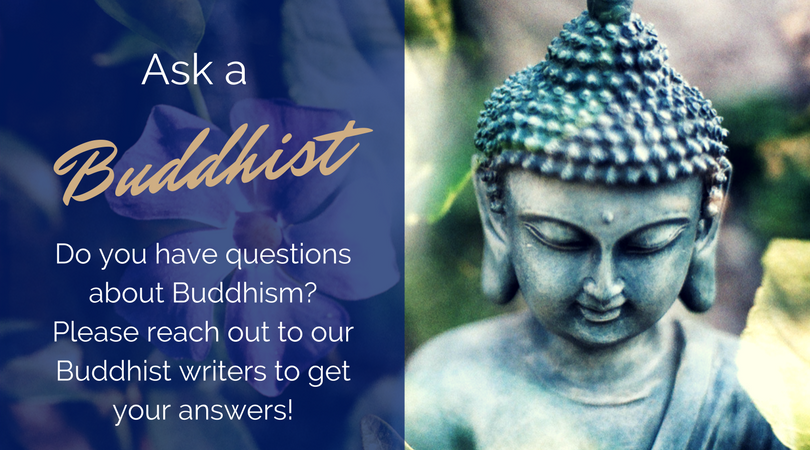Ask a Buddhist: How Can a Muslim Become a Buddhist?
What do you want to ask a Buddhist? Fill out the form below or submit your question online.
Commentary by Ven. Thubten Chonyi
“I was born Muslim, but now I want to continue the rest of my life being a Buddhist. What are some requirements to practice or be in a religion?”
Religions in general exist to support human happiness and wellbeing. They may teach different ways to attain that happiness, but they all basically guide us to cast aside wrongdoing and practice good deeds. Admiration for the virtues of love, compassion, generosity, kindness, patience and so forth is universal for religious and non-religious people alike. Tibetan Buddhism’s Dalai Lama, a widely admired Buddhist teacher, tags these virtues as “basic human values.”
On the other hand, religions can differ greatly when they explain how and why the world exists. The Dalai Lama notes, “There are many different religions and cultures in the world and each has developed to suit its own people.” That’s why he generally advises people to remain with the religion they are born into.
However, if we find that our original religion doesn’t answer our existential questions or satisfy our spiritual longing, the Dalai Lama concedes that it may enrich our lives to find another spiritual resource, another religion.
Practices are universal
Many people find Buddhist practices to calm the mind, open the heart and strengthen ethical conduct to be useful regardless of their religious leanings. Buddhism does not just encourage us to have love, compassion and wisdom; it shows us how to cultivate these qualities. There is a method to transform our mind and heart. No conversion is required, no pledge of allegiance to Buddhist doctrine.
When tens of thousands of people gather for the Dalai Lama’s teachings, you see people in the religious attire of every type — Catholic monastics, Hindus, Muslims and Jews are identifiable in such a crowd. I’m sure they’re there because they benefit from learning ways to grow love and compassion, make our lives meaningful and make the world a better place.
To become a Buddhist
If you are really ready for a change, by all means take a look at Buddhism as a spiritual refuge. There are no requirements from the side of the Buddha or of Buddhism if you wish to become a follower.
Some people may choose to participate in a short ceremony called “taking refuge and precepts.” In it, people say that they want to follow the Buddhist path, and as a first step in doing so, they may also choose to take precepts — to say they will do their best to abandon killing, stealing, unwise or unkind sexual conduct, lying and taking intoxicants. These precepts are not vows; they are guidelines to help us not engage in behavior that we’ve already decided we don’t want to do.
It’s also important to find a qualified teacher. Studying on our own, it’s too easy to misinterpret or misunderstand what the Buddha is trying to tell us. These days, there are many excellent teachings online, but nothing replaces the guidance of a live teacher, even when you’re only one among many thousands of people, as would be the case if you attended the Dalai Lama’s talks.
It’s also essential to be discerning. Check out the teacher’s background and their adherence to Buddhist ethics. Examine: what is their relationship to their own teacher? And how do their students behave? That’s a good guide to the quality of the teacher.
Embody the teachings
Once we’ve adopted a religion, we benefit ourselves and others by cultivating love and compassion for all beings, no matter who they are. Try your best to understand the universal values of all religions and live according to them.
In Buddhism, we seek to abandon harming any living being, helping others as best we can and learning to calm and clarify our own minds. We cultivate generosity, ethical conduct, fortitude and joyous effort in creating virtue as a way of life, while deepening our concentration and wisdom.
Many of these principles mirror the pithy instructions of other faiths, such as “Love your neighbor as yourself,” “Do unto others as you would have them do unto you,” and “Welcome the stranger.” They are universal.
How wonderful our world would be if religious followers of every type could learn to truly embody the spiritual teachings of our respective religions, including mutual respect for one another’s faith and practice.
May you find the spiritual refuge you are seeking for the good of all.
Ask a Buddhist
What questions do you have about Buddhism? Fill out the form below and our writer will get back to you by writing a column in response.







